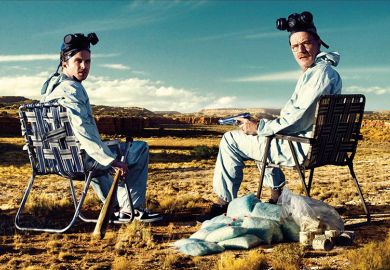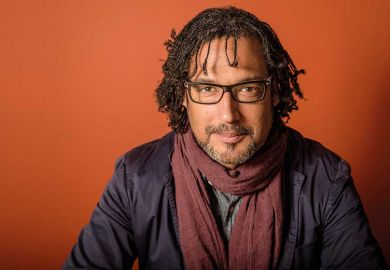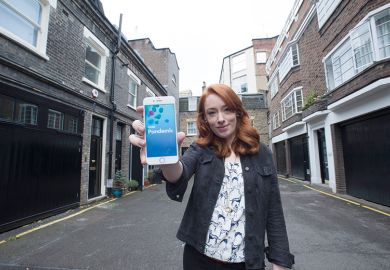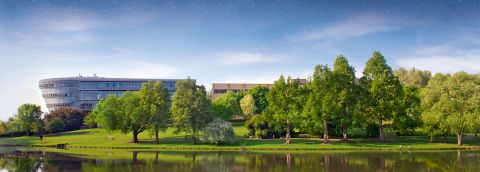Where science stories were once “an amusing aside” at the end of a news bulletin about “what these boffins have got up to”, today “science news is part of mainstream news, whether discoveries of new planets, space missions or the Large Hadron Collider”, observed Jim Al-Khalili.
For the professor of physics and the public understanding of science at the University of Surrey, this is evidence of a radical transformation in science communication, which, he argued, has had the UK at its forefront.
Today, Professor Al-Khalili told Times Higher Education, a researcher’s commitment to science communication was “not seen as a hindrance to career progression in the way that it used to and may still be in other countries”. Measures such as “the proportion of the population attending science talks or watching science documentaries” indicated that “Britain is probably a decade or so ahead of the game” and had much to teach other countries.
Professor Al-Khalili’s own career represents a striking example of how times had changed. In the mid-1990s, he explained, he was “halfway through his second postdoctoral fellowship and working as a temporary lecturer at Surrey”. When he began to “feel the pull towards getting involved in communicating science” alongside his research, he was clearly told that he should “leave it to others who weren’t as research-active as me”.
A quarter of a century on, Professor Al-Khalili remains an active researcher with a team of five PhD students, although his interests have shifted from nuclear physics to quantum biology. But he is also an extremely well-known broadcaster, who has presented programmes on electricity, gravity, nuclear power, The Science of Dr Who and the history of science, including the largely untold story of Science and Islam in the Middle Ages.
While some scientists were mainly interested in communicating their own research, he explained, he had always wanted to range far more widely, in order to “get across how the scientific method works” and to help promote the kind of “scientifically literate society” we urgently need in an era of tabloid sensationalism and fake news.
In The Life Scientific, the popular BBC Radio 4 series he has presented for more than seven years, he actually “find[s] it easier to have a conversation with a scientist who is very far from my field, an entomologist or a geologist or a psychologist, and to ask the questions I think the listeners would want to ask. If I’m talking to another physicist, I have to make a conscious effort to zoom out and make sure we don’t get into a technical chat among chums.”
Nowadays, in Professor Al-Khalili’s view, there was much wider acceptance of the idea that public engagement was “not a lower-grade activity” for scientists or just a distraction from their “proper job” of research. “Vice-chancellors see the value of it,” he claimed, not least in raising the profile of their institutions, while “young researchers see it as cool to get involved”. The main barriers came from “heads of departments, labs and research groups, where the pressure of funding may be paramount…It’s in the middle ground that things have to change.”
Although public engagement had its irritations, Professor Al-Khalili was philosophical about them. Broadcasters just had to accept that “people will comment on whether you’ve put on weight, what your hair’s like, whether a jacket suits you or your accent”. Though he seldom got criticism from fellow scientists, he had to put up with occasional pedantic comments from historians of science: “If you say ‘Humphry Davy was a great scientist’, someone will point out that technically the word ‘scientist’ wasn’t invented until the 1830s, so he wasn’t a scientist, he was a natural philosopher.” His response to such nit-picking was: “This is a TV documentary. It’s meant to enlighten and entertain. If you want just to be educated, go and read a textbook.”
Asked about his advice for others, Professor Al-Khalili said that he always told students they had to choose “between being a science communicator and a scientist who communicates. If you want to [be the latter], go on to postgraduate study, build up your credibility in a particular field, so you really understand what it’s like to do science. Then gradually build up your portfolio of science communication.
“My only other advice is to do what I did. If I had listened to the advice of people who were more experienced than me, who warned me off science communication, I wouldn’t be where I am today. Follow your heart – though that’s not a very scientific thing to say.”
matthew.reisz@timeshighereducation.com
Jim Al-Khalili will be speaking on public engagement in science at the THE Young Universities Summit, held at the University of Surrey on 26-28 June 2019.
Register to continue
Why register?
- Registration is free and only takes a moment
- Once registered, you can read 3 articles a month
- Sign up for our newsletter
Subscribe
Or subscribe for unlimited access to:
- Unlimited access to news, views, insights & reviews
- Digital editions
- Digital access to THE’s university and college rankings analysis
Already registered or a current subscriber?










